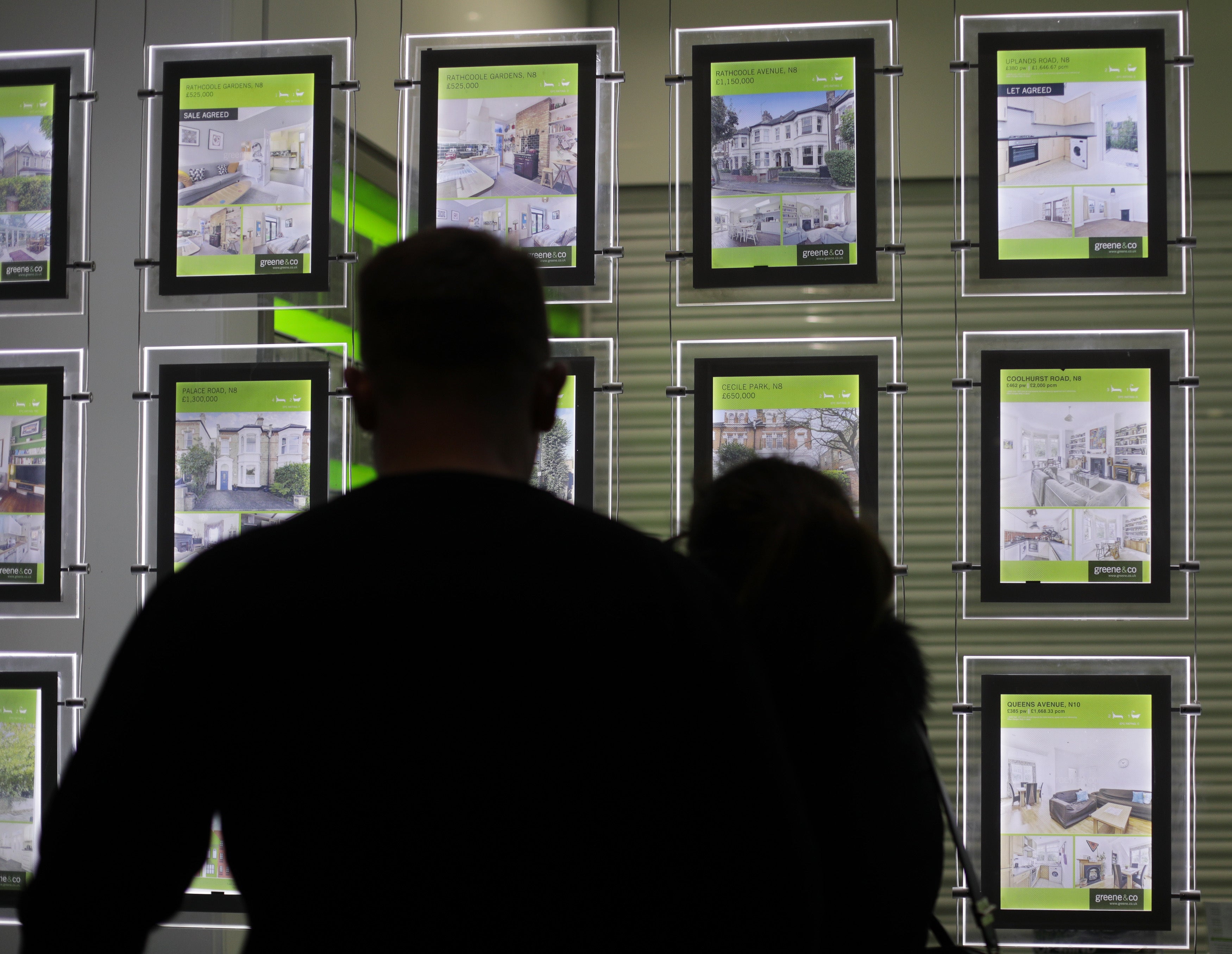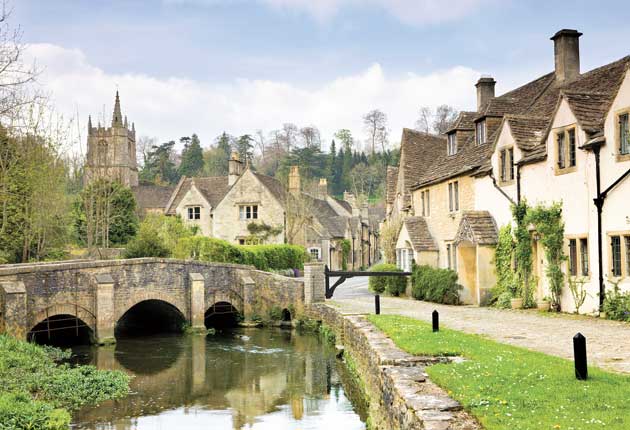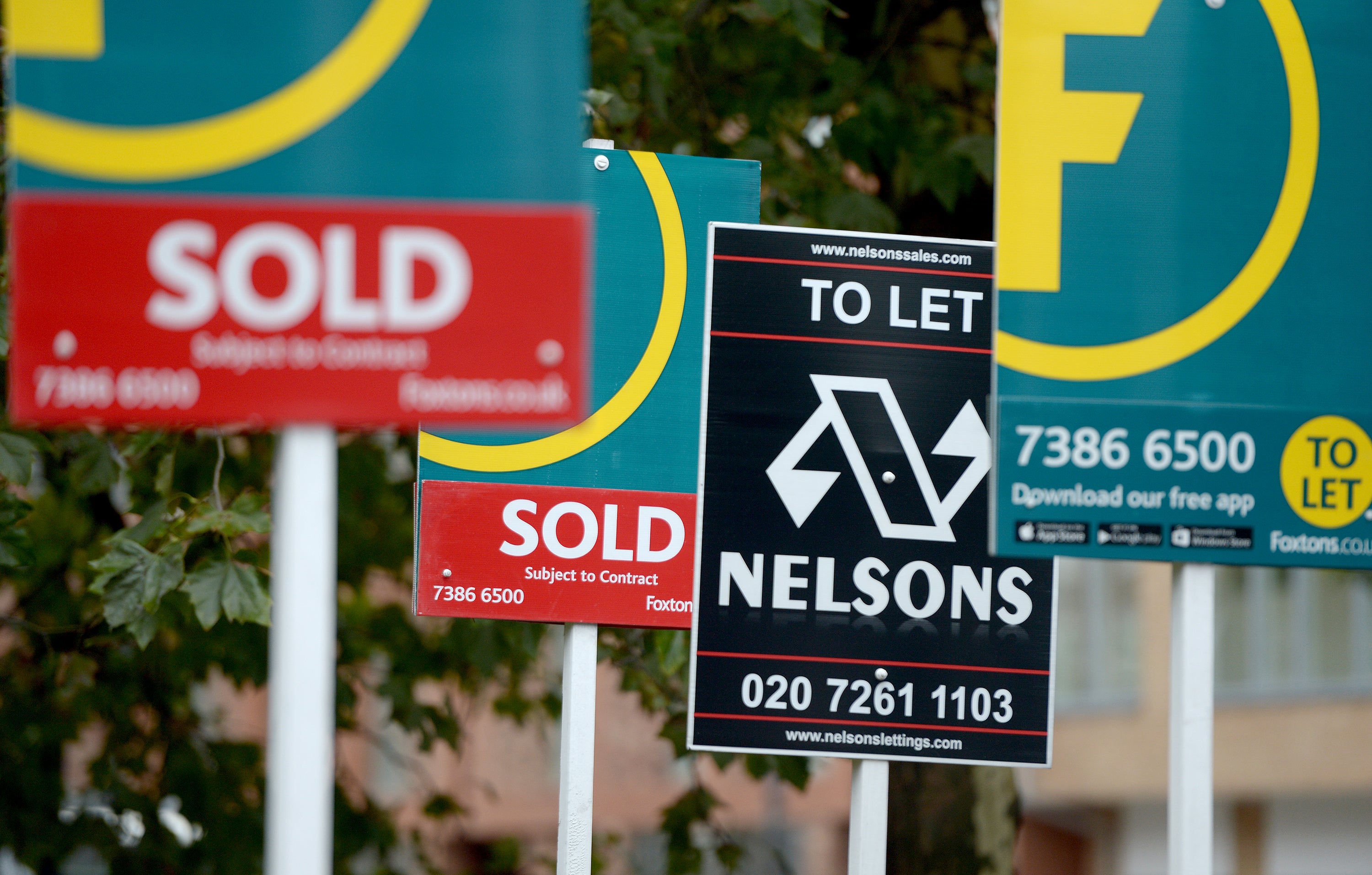UK house prices: Will rising interest rates cause a property market crash?
Property pices are rocketing but many experts are predicting a slowdown in price growth later this year, explains Ben Chapman

Mortgage payments are on the rise after five successive interest rate hikes from the Bank of England and further increases expected over the coming months.
The Bank is seeking to contain inflation which is on course to hit 11 per cent this year - the highest in four decades.
Ultra-low interest rates have made mortgage borrowing cheaper, inflating a housing bubble that has made homeownership a distant dream for many renters in some parts of the UK.
But, as the era of low rates comes to an end, will the UK’s out-of-control property market beging to cool down and could we even be heading for a crash?
What is the latest data on UK house prices?
Official figures out this week show that prices rose 12.4 per cent over the year to April. That was a big jump on the 9.7 per cent increase recorded in March, and it means the average sold price rose by a staggering £31,000 - more than the median UK wage - to £281,00.
For now, it seems, buyers are willing to stomach the relatively modest rise in monthly mortgage payments, although the official data does not yet reflect the most recent increases to interest rates.
All four nations saw big gains in the cost of a home with average prices increasing in England to £299,000 (11.9 per cent), in Wales to £212,000 (16.2 per cent), in Scotland to £188,000 (16.2 per cent) and in Northern Ireland to £165,000 (10.4 per cent ).
Growth was slowest in London at 7.9 per cent, although the capital still has the UK’s most expensive real estate.
More up-to-date figures from the Halifax show that prices were still riseing rapidly in May.
Despite fears about living costs and big increases to energy bills, house prices rose 1 per cent (about £3,000) compared to April and 10.5 per cent over the year.
The average house price hit £289,099 after the 12th consecutive monthly rise.
Halifax said a continued “imbalance between supply and demand” for properties remains the primary reason driving prices to new record levels.
A “race for space”, which began during the pandemic, is likely to continue as people move out of apartments in cities to larger houses in more rural areas.
“However, the housing market has begun to show signs of cooling,” said Russell Galley, managing director of Halifax Mortgages.
“Activity has started to come down and, coupled with the inflationary pressures currently exerted on household budgets, it’s likely activity will start to slow.”

However, there are signs that prices may still be supported by strong demand. Estate agent Chestertons said it has seen a 31 per cent jump in the number of people registering for viewings at its London branches.
Chief executive Guy Gittins said there is now a “strong sellers’ market” and the number of vendors willing to reduce their asking prices has fallen 38 per cent in the past year.
“The sheer volume of agreed sales in April has created a challenging workload for solicitors and banks which has impacted on the time it takes to finalise a sale,” he said.
Rising interest rates will impact some buyers’ ability to purchase a home but the effect may be limited.
How much have mortgage rates gone up?
Some lenders have hiked their mortgage rates by twice as much as the Bank of England base rate.
HSBC increased prices on fixed-rate mortgages by between 0.45 and 0.5 percentage points last week, well in excess of the quarter per cent increase to the base rate. Nationwide also raised its rates by as much as 0.4 percentage points.
The Bank of England’s latest move will have an immediate impact on the 1.9 million borrowers on standard variable rate or tracker mortgages, which move in line with the base rate.
On a £200,000, 25-year mortgage, that means £700 more in interest payments over two years.
About 75 per cent of Britain’s 9 million mortgage borrowers are on fixed deals, according to banking trade body UK Finance.
Fixed rates are also on the rise, with the average two-year fixed rate rising by almost 1 per cent since December 2021.
The average two-year fixed rate is now 3.25 per cent, up from 2.34 per cent in December, according to figures from Moneyfacts.
Five-year deals are up to 3.37 per cent from 2.64 per cent six months ago.
As the rate gap between the average two-year and five-year fixed rate has narrowed, fixing for longer may be a sensible move, said Rachel Springall, finance expert and Moneyfacts.
Even longer terms are available at similar rates, with the average 10-year fixed deal now 3.36 per cent.
What’s driving UK house price increases?
Prices have been inflated by the supply of cheap credit. While rates are increasing they still remain very low by historic standards.
Supply of homes also remains a problem. There aren’t enough properties that people want in the areas that they want them.
There is now a clear dividing line in the market between houses, which are in high demand, and flats, which are proving tougher to sell in many areas.
The UK’s planning system has been blamed for slowing down the process of building new properties and restricting supply.
Government proposals to radically overhaul the system and replace it with a zoning model that would automatically approve developments in designated areas have proved controversial. Some reports suggest that ministers are going to ditch the changes.
Big developers are also being criticised for hoarding large amounts of land that may not be used to build on for years. In the meantime, the developers profit from holding the land as values continue to rise while the supply of new homes is constrained.

What next for UK house prices?
Property market experts are divided on where house prices will go next but few are predicting a fall this year.
The question is how rapidly prices will continue to rise.
Tom Bill, head of UK residential research at Knight Frank, said the recent period of price growth appeared to have reached its summit last month.
“We don’t expect prices to fall but we are presumably in the final month or two of double-digit annual growth,” he said.
“The psychological impact of a rising base rate above 1 per cent, higher mortgage rates, a cost-of-living squeeze and the gradual rebuilding of supply will all contribute to the slowdown as house prices come back down to earth later this year.”
Halifax expects house price growth to slow further as affordability becomes more stretched.
“The house price to income ratio is already at its highest ever level, and with interest rates on the rise and inflation further squeezing household budgets, it remains likely that the rate of house price growth will slow by the end of this year,” said Russell Galley, managing director of Halifax.
Capital Economics is also predicting a sharp slowdown in price growth towards the end of the year.
Join our commenting forum
Join thought-provoking conversations, follow other Independent readers and see their replies
Comments
Bookmark popover
Removed from bookmarks